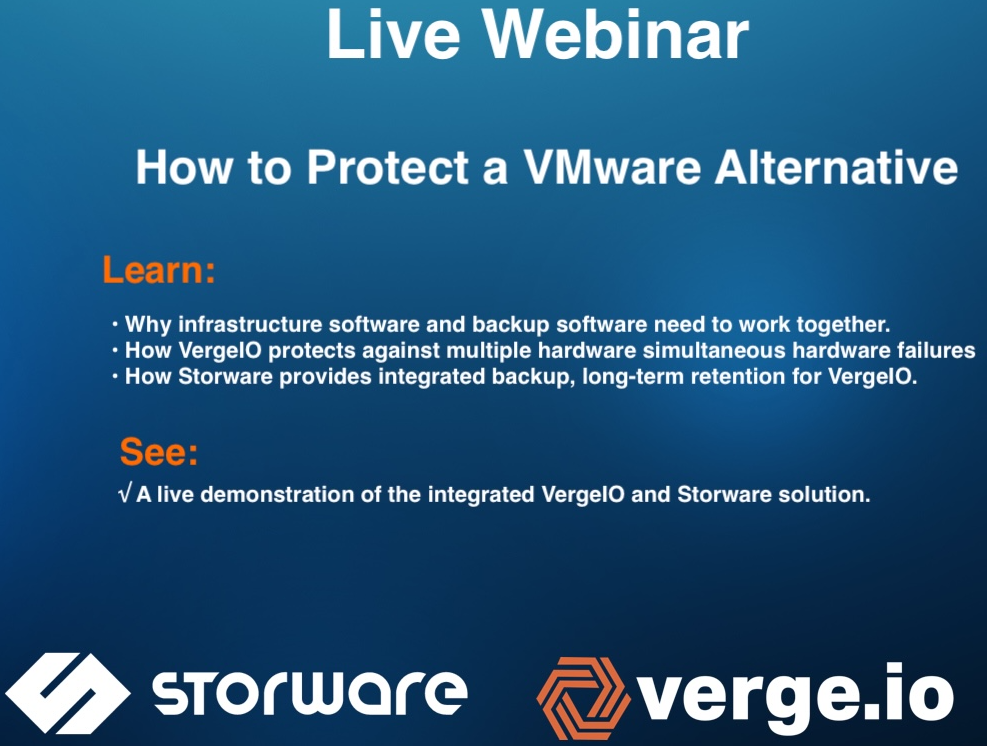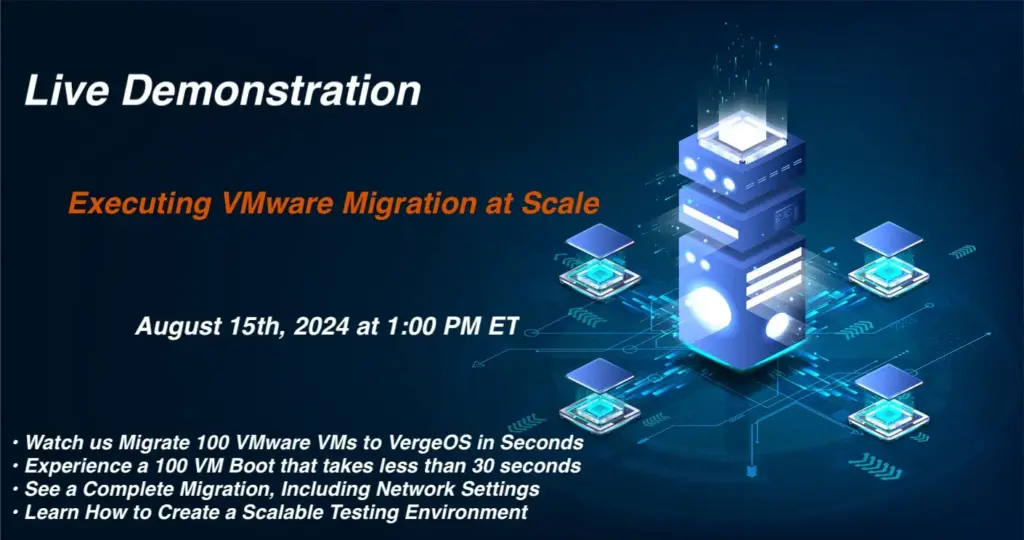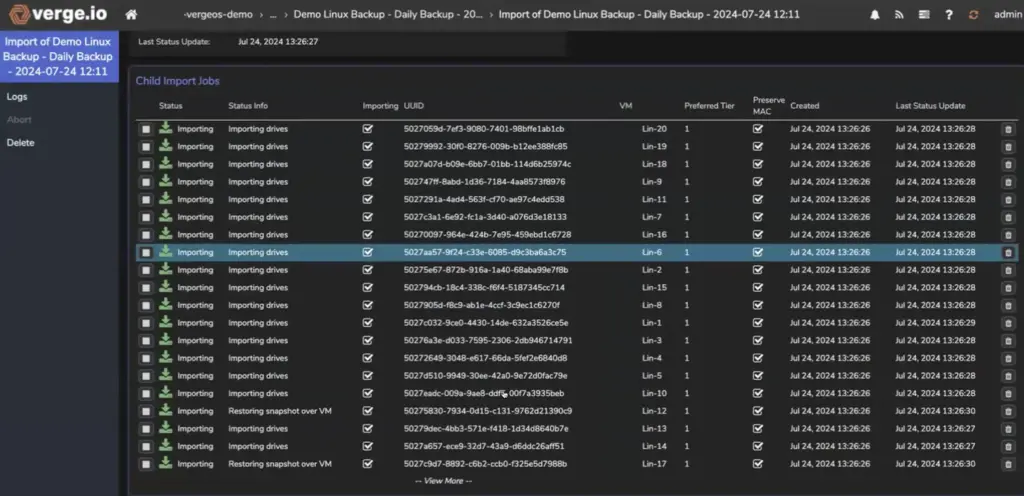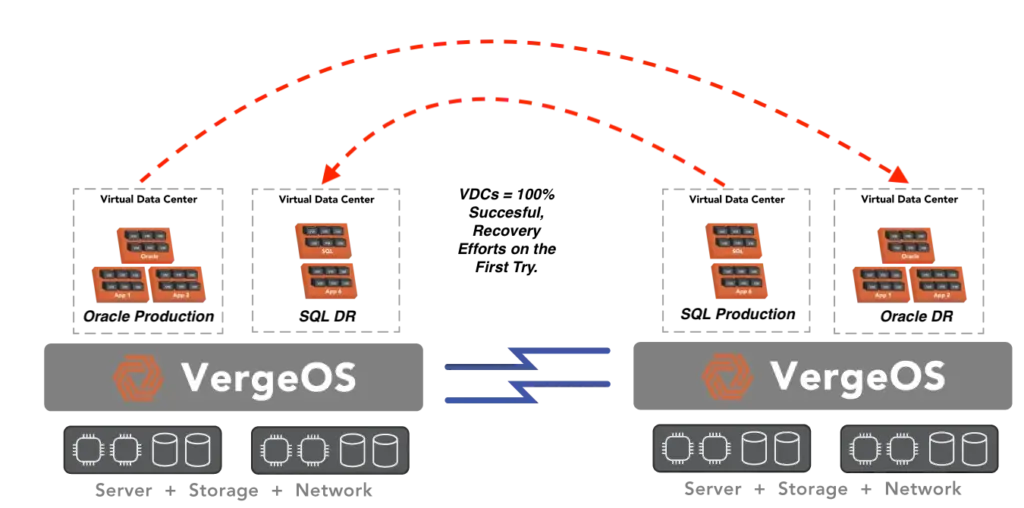The shared responsibility of data protection requires collaboration between infrastructure software and backup software. Both systems must work together to ensure data resiliency, protection, and recovery. Relying solely on one or the other can leave gaps, creating vulnerabilities that put critical data and operations at risk.

In this shared responsibility model, infrastructure software (including hypervisors, storage, and networking) handles hardware failures and maintains uptime. Meanwhile, backup software safeguards against user errors and cyberattacks and ensures long-term data retention. This balanced approach ensures complete protection across all potential points of failure.
The Complexity of Modern IT Environments
Data centers today are more intricate than ever before. Enterprises rely on a combination of hypervisors, bare-metal systems, containers, and cloud services across various platforms and environments. The traditional single-backup-system approach is no longer sufficient. Businesses must implement solutions that address the unique challenges of each infrastructure component.
Infrastructure software, which manages virtual machines, networking, and storage, should provide data resilience, ensuring that workloads continue running despite multiple simultaneous hardware failures. Meanwhile, backup software protects data from soft errors—such as accidental deletions, ransomware attacks, or software bugs—and provides long-term data retention and compliance.
The shared responsibility model creates a structured way for infrastructure and backup systems to complement each other, ensuring no gaps in data protection.

On Thursday, October 3rd, at 11:00 AM ET, we will explore the shared responsibility model in greater depth and demonstrate how its two components can work together to deliver unprecedented levels of resilience, protection, and recovery.
Register here to secure your spot!
VergeOS and Storware: A Shared Responsibility for Data Protection
The collaboration between infrastructure and backup solutions is at the heart of the shared responsibility model. The integration of VergeOS and Storware provides an excellent example of an end-to-end solution for data resilience, protection, and recovery.
VergeOS: The Role of Infrastructure in Data Resiliency
VergeOS is more than just a VMware alternative. It’s an ultraconverged infrastructure consolidating the hypervisor, storage, and networking into a single piece of software. In addition to delivering a more efficient infrastructure software solution, this approach allows VergeOS to provide superior protection against hardware failures, ensuring superior uptime and resiliency.
One of VergeOS’s standout features is its IOclone technology, which creates fully independent snapshots of selected objects, such as virtual data centers, instances, or virtual machines. Unlike traditional snapshots that rely on the redirect-on-write method, VergeOS’s IOclone ensures that snapshots are independent of the original object. If the original object is deleted, the snapshot remains intact and can be restored.
VergeOS also incorporates integrated deduplication, making snapshots highly efficient in terms of storage capacity consumption. This enables businesses to keep thousands of snapshots over long periods without any performance degradation.
In addition, VergeOS features ioGuardian, a real-time recovery solution that activates during multiple hardware failures. With inline recovery, ioGuardian provides missing data segments to virtual machines in real time, preventing downtime even during catastrophic failures. This ensures infrastructure resiliency, addressing gaps that often occur when infrastructure systems rely too heavily on backup systems for recovery.
Storware: The Role of Backup in Data Protection and Recovery
While VergeOS handles hardware-level protection and resiliency, Storware ensures data is safeguarded from user errors, accidental deletions, and ransomware attacks. Storware’s backup solution supports KVM-based hypervisors (including VergeOS), bare-metal systems, containers, and cloud environments such as Amazon AWS, Microsoft Azure, and Google Cloud Platform.
Storware’s two-stage backup architecture offers scalability and flexibility in data protection. In the first stage, Storware collects data from multiple sources and stores it temporarily in Storware nodes. These nodes can scale to meet increasing capacity or performance demands.
In the second stage, the data is transferred to a final repository, which could include object storage, file systems (NFS or SMB), enterprise-grade storage (such as Dell EMC Data Domain or HPE StoreOnce), or even tape libraries for organizations that need offline data storage.
Storware’s support for incremental forever backups captures only changes after the initial backup, reducing backup times and network strain. Additionally, Storware performs data consolidation in the staging area, ensuring that recoveries are full-speed, even when multiple incremental backups are involved.
When integrated with VergeOS, Storware leverages Change Block Tracking (CBT) technology to optimize backup efficiency by minimizing the amount of data transferred over the network.
Why the Shared Responsibility Model is Crucial for Modern Businesses
The partnership between VergeOS and Storware highlights the power of the shared responsibility model. Together, they provide comprehensive protection across all failure points—whether hardware-related or human error.
Organizations relying solely on backup software for all data protection risk gaps in infrastructure resiliency. Conversely, relying only on infrastructure software without a dedicated backup strategy can make meeting compliance or data protection best practices demands challenging. The shared responsibility model ensures that both systems—infrastructure and backup—work together harmoniously.
With VergeOS managing uptime and resiliency during hardware failures and Storware protecting against soft errors and enabling long-term retention, businesses can be confident that their data is fully protected. This holistic approach is particularly crucial for organizations managing multi-tenant environments, hybrid cloud infrastructures, or complex virtualized systems, where any failure can lead to severe consequences.
Conclusion: Shared Responsibility Equals Stronger Protection
Modern IT environments are vital to an organization’s success and demand a comprehensive approach to data protection. By adopting the shared responsibility model, organizations can ensure that infrastructure and backup systems work together to provide seamless data resiliency, protection, and recovery.
The collaboration between VergeOS and Storware exemplifies this model in action. VergeOS protects infrastructure from hardware failures and ensures uptime, while Storware safeguards data against soft errors and provides long-term retention. Together, they offer a turnkey solution that helps businesses of all sizes protect their most valuable asset—their data.
Join Our Webinar: How to Protect VMware Alternatives with VergeIO and Storware
Interested in learning more about how infrastructure and backup software can work together to safeguard your data? Join us for a live webinar, “How to Protect VMware Alternatives with VergeIO and Storware,” where we’ll explore these concepts further and demonstrate how the two solutions integrate seamlessly.
- Date: Thursday, October 3rd, 2024
- Time: 11:00 AM ET / 8:00 AM PT
- Duration: 30 minutes + Q&A
Register here~ to secure your spot!











